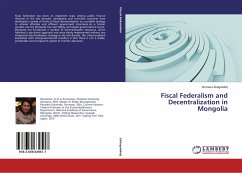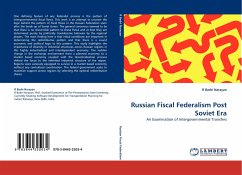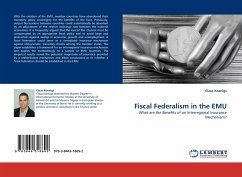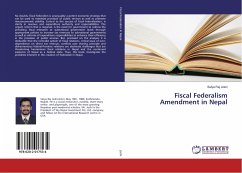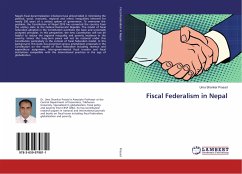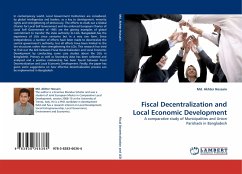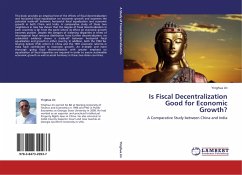Fiscal federalism has been an important topic among public finance theorists in the last decades. developing and transition countries have developed a variety of forms of fiscal decentralisation as a possible strategy to acheive effective and efficient government structures. As a formar socialist country Mongolia has had highly centralised governmental sector. Mongolia has introduced a number of decentralisation measures, which followed a top down approach and were slowly implemented without any integrated decentralisation strategy in the last decade. the critical problem associated with intergovernmental transfers is that there is not a stable, predictable and transparent system of transfer allocation.
Bitte wählen Sie Ihr Anliegen aus.
Rechnungen
Retourenschein anfordern
Bestellstatus
Storno

